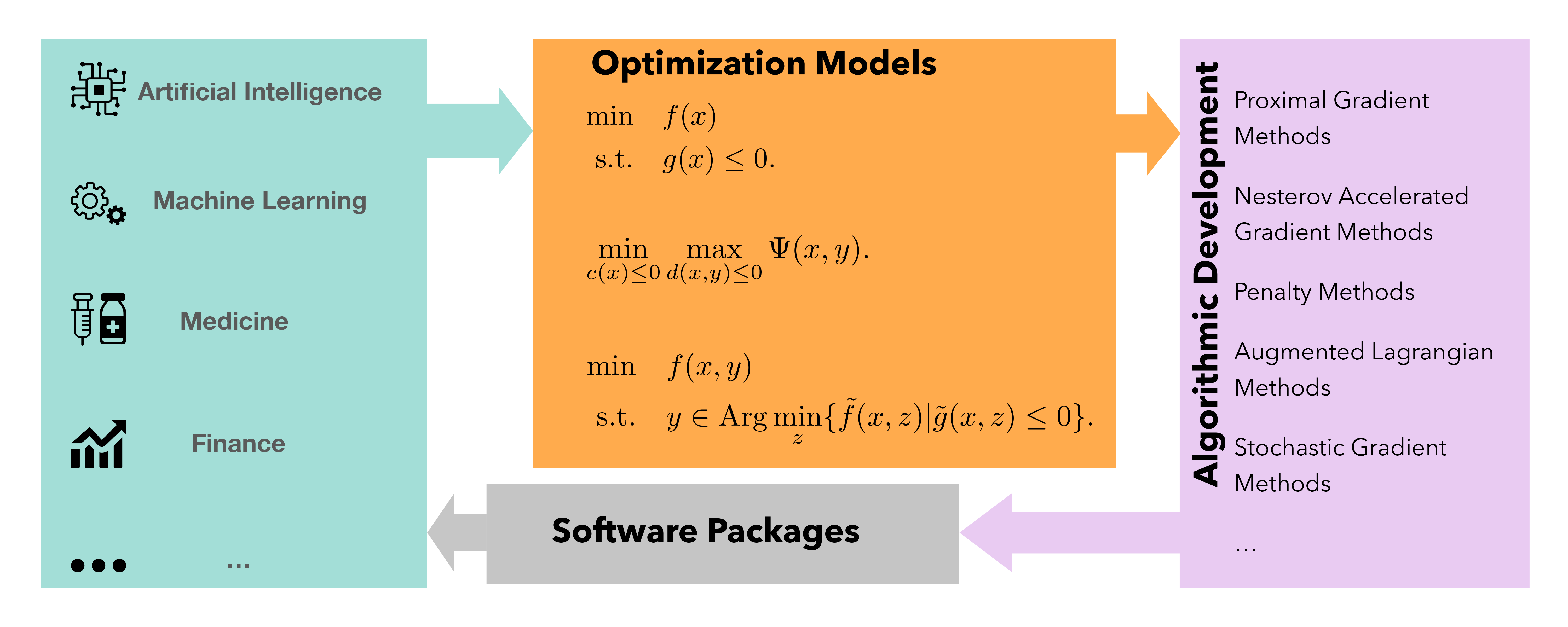Convex optimization is an indispensable modeling and computational tool for all science and engineering fields. Convex optimization problems are found in many areas, such as artificial intelligence, machine learning, computer vision, signal processing, imaging science, computational biology, medicine, finance, network analysis, and logistics. These disciplines often entail huge datasets, with a large number of decision variables and constraints. They also have a huge number of functions involved in objective function and constraints. These convex optimization problems are far beyond the capabilities of existing methods and bring enormous challenges to practitioners.
Professor Zhaosong Lu (Industrial and Systems Engineering; MSI PI) is working on a project called “Toward a novel and fast method for big convex optimization,” that proposes to develop a novel and fast method with strong theoretical performance guaranteed to solve big convex optimization. This project recently received a Research Computing Seed Grant. RC Seed Grant funds are intended to promote, catalyze, accelerate and advance U of M-based informatics research in areas related to the MnDRIVE initiative, so that U of M faculty and staff are well prepared to compete for longer term external funding opportunities. Because of the wide applicability of this project, this Seed Grant falls under all research areas of the MnDRIVE initiative: Robotics, Global Food, Environment, Brain Conditions, and Cancer Clinical Trials. Professor Lu uses MSI resources for projects that develop novel and efficient algorithms for continuous optimization.
Small (up to $10,000) seed grants are awarded throughout the year and applications can be submitted at any time. Medium ($10,001 - $50,000) and large ($50,001 - $120,000) seed grants are awarded semiannually – the spring submission deadline is the last Friday of April and the fall deadline is the last Friday of October.
